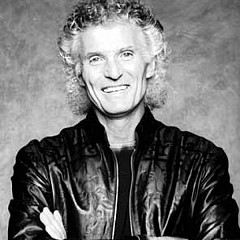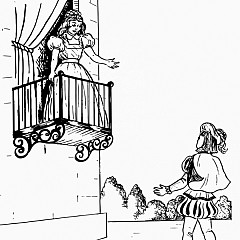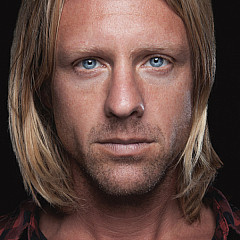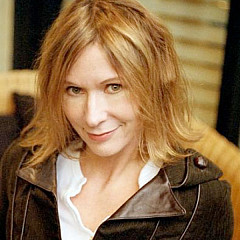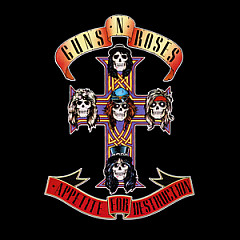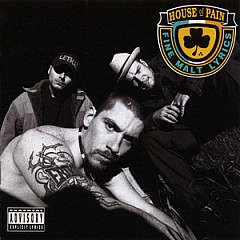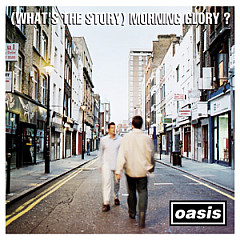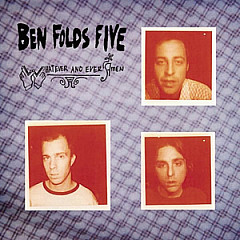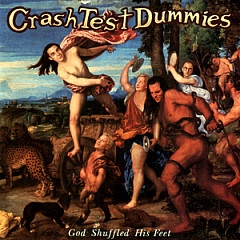Powered by an ever-evolving array of beats, Basement Jaxx has 18 tallies on the UK Top 40 and four #1 dance hits in the US, including their 2014 single "Never Say Never."
Buxton, who formed the duo with Simon Ratcliffe in 1994, was keen on telling the stories behind some of their biggest songs, including a few from their latest album Junto.
 Greg Prato (Songfacts): Let's start off by talking about the new album, Junto.
Greg Prato (Songfacts): Let's start off by talking about the new album, Junto. Felix Buxton: I think this one's probably got more co-written tracks than ever before. There's maybe about four or five tracks which are co-written, including "What's the News," "Unicorn" and "Summer Dem." So that's kind of different for us.
And also with this album we were more open to mixing it up a bit, and coming from a different angle. "Junto" means "together" in Spanish, so it's not about us, it's about the Basement Jaxx family and the Basement Jaxx crew and the Jaxx crew worldwide. So it's opening the doors a bit and not being so precious with our old idea of Basement Jaxx. And it was all more or less done over a couple of years.
Songfacts: How would you say that the songwriting process usually works in the band?
Felix: Generally in the band, Simon is more chords and I'm more words and melodies. That's the general thing, and then we kind of edit each other's ideas. This album, for example, "Mermaid of Salinas," the riff for that track was created by Andrea Terrano. He's a friend, a really great guitarist. He had this smooth jazz piece that he'd done. I was helping him with the track, and I just kind of whipped out a little bit and I said, "Actually, this is a really strong theme, it'd be great to embellish this."
Initially a lot of these things just start as something to DJ or play. I mean, that's actually been around for about three years. Then two years ago he came on holiday with me in Ibiza. He'd been in a long relationship and was now free of that. He went for a walk into the sea, and he was chatting to this woman - or should I say lady - and they're walking out into the waves. They ended up making love there in the waves... with a complete stranger. It was a spiritual, healing moment for him.
So when we got back from Ibiza, I sat down with him and basically we wrote the song about the story, because it seemed that was the next page of it. But that was about a year after the groove was around.
And then the trumpeter [Ben Edwards] is part of our live show. He came and recorded stuff. The chorus on the vocal has got people who came on over several months. Different people would come in to have a cup of tea, and would end up singing on there.
Then we did a DJ night where Simon and myself DJ'd and Andrea came with his guitar. I stopped the music for a bit and Andrea just played, and it was really good. Someone videoed it on a phone, and it was wicked, so that ended up being the bridge. So it became a longer track.
But that's just one song. And then something like "Never Say Never," Simon played some chords, I sang a song to it, and then we tried a couple of people singing it.
Songfacts: How does the band go about selecting the vocalists for songs?
Felix: Well, Andrea on "Mermaid of Salinas," it's just that it was his story. He's not really a vocalist, but he just sang it. On the deluxe album, there's "Back 2 the Wild," that was a couple of girls who were staying in my spare room. They were on holiday from New York. They actually ended up staying in London. They'd never been in a studio before, and they're not singers.
And then "Never Say Never," he was a vocalist [ETML] we came across via someone else. We were looking for someone to sing "Never Say Never," and we heard something that he'd done, and got him to come into the studio and asked him if he was up for trying to sing it. He was, and he sounded great. So it's a lot of random encounters. The whole process is quite organic.
Felix: "Never Say Never," well, basically, I was trying to work out what it meant afterwards. Because, well, basically it's about an ex-girlfriend and just the fact that you can love someone and have such an amazing time and it'll all be so perfect, but so wrong. You'll hold that with you forever, but you don't regret it. It's a pleasure/pain thing. It's coming to terms with that and actually seeing it in a positive light.
Songfacts: "Good Luck."
Felix: Well, Lisa [Kekaula] came in to sing another song, "Plug It In." She came over from America.
It just wasn't working, her singing the "Plug It In" song. So Simon and I sat there on the last morning - we had a couple of hours with her. I said, "Well, let's just do something," and he played a riff.
We started with a kind of old-soul feel, and then I scribbled some words. It was from the perspective of my girlfriend singing to me. I was having a go at myself from another person's perspective.
Songfacts: "Where's Your Head At."
Felix: Well, that started as an idea about losing control and about states of anxiousness. Basically, they're the same divide between sanity and madness.
I had scribbled down lots and lots of words, and then this guy [Damien Peachey] came into the studio. We were getting to know him as a person - he was a hip-hop artist. And suddenly the song changed shape, and a lot of the initial words I had, for him as a person, they didn't seem relevant or just seemed inappropriate. So half of it got binned.
But still, in the chorus we had something from somewhere else completely that was going "Where are my dogs at?" So we had this song about lunatics going out of control and facing reality, and then we had this hook, "Where are my dogs at?," that was not even linked to the song. And in the middle of the night, that was when it was like, "Where's my head at?" And that thought came to me, That would make it all make sense.
So in a way, that song was like a bit of a puzzle and it kind of grew into being. That didn't happen in one moment.
Songfacts: "Raindrops," you sing lead on that song, right?
Felix: Yeah. "Raindrops," that's another lady on the other side of the world. And... [long pause]
Songfacts: Hello?
Felix: It's all right, I'm just thinking. I was just thinking what the words are. Sorry. That is basically talking to someone through the sky on the other side of the world. To me it was kind of poetic: "In a desert you're standing, a silhouette in motion." So it's a surreal look at a real situation. It's imagining that situation kind of in a film of that person, but irrelevant of what the landscape is.
Songfacts: How about the song "Romeo"?
Felix: That started off as "I used to be your Romeo, I used to be really special," and I was singing it from a male perspective to a woman. Then it changed to be from a woman, so it's, "You used to be my Romeo, you used to be someone special." So actually it's the girl having a go at the guy, but initially it was me having a whinge. I used to be your Romeo, but you're neurotic. So the characters in the play changed.
Felix: Well, "Bingo Bango," a friend of mine said when we first did that, "What on earth is bingo bloody bango? What nonsense is that?"
But in a way that's referencing "Go Bang," which is an old sort of track, like a disco track: "Go bang, bang-o, bang-o, bang-o." It's called "Bango." Which Todd Terry sampled.
["Go Bang" is a 1982 electro-dance song by Arthur Russell's outfit Dinosaur L. Todd Terry sampled it on his 1988 track "Bango (To The Batmobile)."]
That track was basically just a Latin house track, and we wanted to give it a feel-good hook. We went and got Cassie [Watson], who was a friend. She was working at the local car hop place. We went and got her at lunchtime just to record her and said, "Could you go, 'bing a bing a bing, bang, bango." Make some noises, congo, bongos. And it ended up being "Bingo Bango."
Songfacts: "Lucky Star."
He came into the studio and he said he didn't want to do a grime track. You know, the stereotypical urban-rattler thing. We thought, Oh, that's cool, that's open-minded, that's really interesting and fresh and good for you.
I said, "It'll be good maybe to talk about a situation at that point in time." And basically he was looking for something to get him out of the ghetto and out of heaviness and small-mindedness. So Dizzy, Simon, and myself, we sat around for a while and discussed this idea of what that would be. We liked the idea of "Lucky Star," even though Madonna had the famous song. It was like, Well, that's a starting point.
And it was basically like, "Please tell us your story and where you're at." We made a hook and a chorus, and then he did the verses.
Songfacts: Who are some of your favorite songwriters?
Felix: My favorite artist is Mozart, and I like John Coltrane. But he doesn't really have many words. The craft of songwriting, I don't know if I've ever really studied it that intensely. I know the rock world is often very keen on deciphering things that often to me don't sound very radical or amazing. But I've always just viewed songs as poems put to music.
So I suppose I think Oscar Wilde is very witty. I mean, I don't know if there's one main songwriter I'd look to. "Bohemian Rhapsody" I think is an amazing piece of music. That interests me as a song and where that came from, because I can't quite understand it. So for that reason it's intriguing. But I don't feel like there's someone I've studied.
Songfacts: What is on the deluxe version of the album that's different from the original?
Felix: The deluxe version of the album has a lot of stuff that isn't just filler - it's good quality stuff.
We wanted it to be on the album, but the idea was not to make the album too long. So tracks like that were left off.
There's a track featuring Chara, I can't remember what the eventual title is ["Wherever You Go"]. She's a Japanese singer, so that I really like. And "Daddy Makes Boom Boom," which is a house track with DJ Sneak. That's on there. That's in the "Bingo Bango" vein - you don't need to think too much. It's just straight-ahead body music.
And the Korean version of "Back 2 the Wild" is on that, and "What A Difference Your Love Makes," which were released last year, but I don't think a lot of people know they exist. "What A Difference Your Love Makes," I'm really pleased with the song.
And check out Powertothepeople.fm. It's where people have created versions of the song "Power to the People" all in different styles and languages, and you can play them in a mashup player. We put out six versions of it for charity last week for World Peace Day. That's a really empowering song about humanity and for singing our connectivity and our interdependency with other human beings.
If you sing, you dance, if you're an artist, a video maker, you can put your stuff in there, do your version of it, and see it there and make links with people on the other side of the world. That's really growing at the moment, which we're really pleased about.
And that's just an interesting side thing that's along with the album. But that's very much about making a creative platform that's nothing to do with commercial music. Probably the first thing that I went and recorded for that was the Paraguay Recycle Orchestra. They're all kids that have made instruments out of all the trash and all the rubbish that we've created in the wasteful society that we are. They're all teenagers from a very deprived area, and they play amazing music. They're actually a feature on the "Power To The People" track.
Their story was so inspiring, it stimulated me to pave the "Power to the People" idea further and I went and DJ'd a piece for them here in London last Friday. And Niara [Scarlett], whose voice is on the track, she came and sang "Power to the People." So it seems to be a track that's living out there, and people can live within it and do something, get involved.
January 15, 2015. Get more at basementjaxx.com. Photo credit: Jamie Beeden.
More Songwriter Interviews



